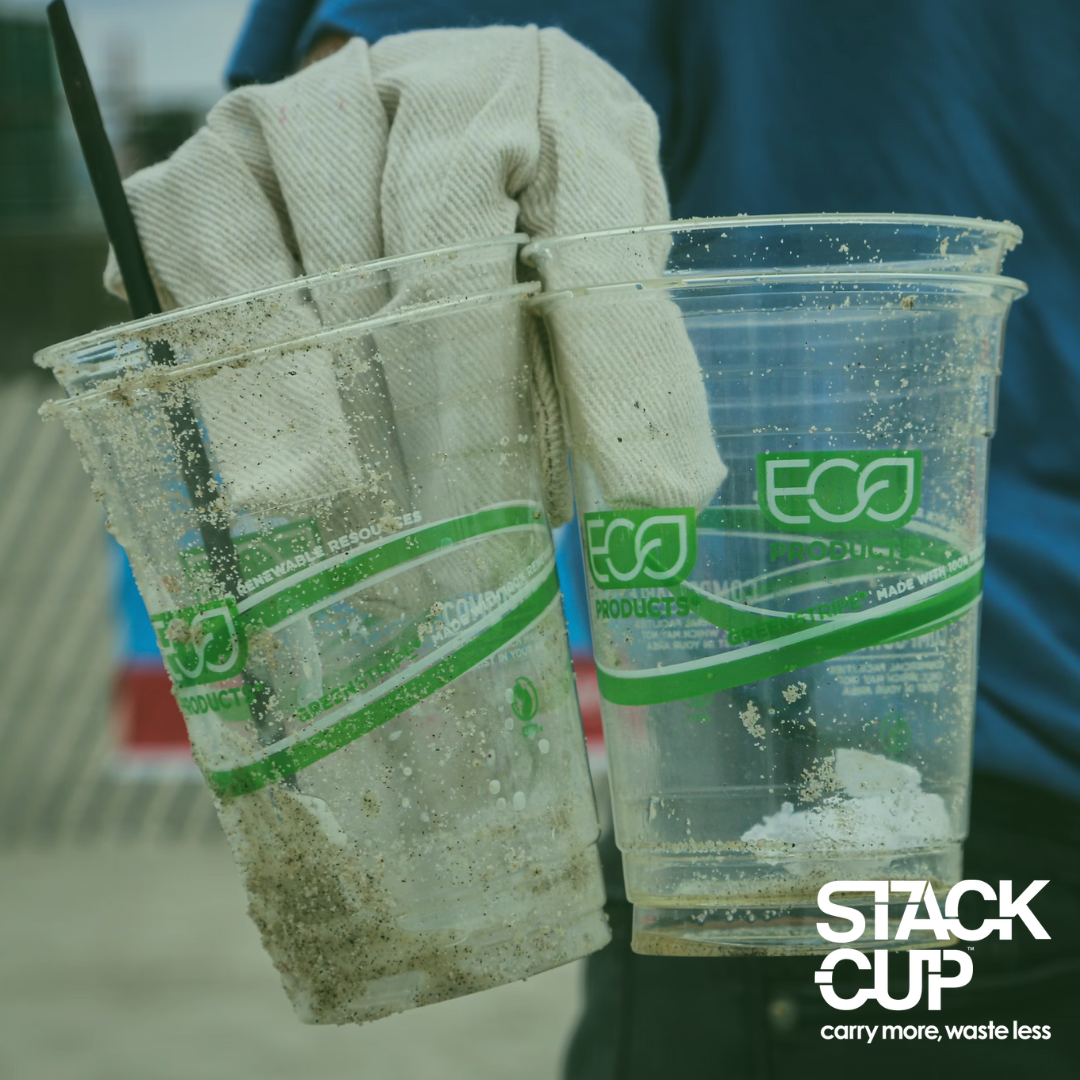
Reusable Cups vs Disposable Cups. What's Best For Your Event?
When considering the use of cups for events, there are several factors to consider in the reusable vs disposable cups debate…. Before we start to answer this, and look at the pros and cons, it’s important to understand why this is even a debate. There are many opinions on whether disposable cups are worse or better for the environment than reusable alternatives and this comes from comparisons such as Emissions, Pollution, Natural Resource Use, Types of cups and a number of other variables like technology used in manufacture or how long it travels to get to you - this all changes the environmental impact.
There are also variables to compare when it comes to scoring the overall environmental impact of a reusable vs disposable product. Production, use and post use are all important things to think about.
The total environmental impact of a product can be calculated using this formula: Cost of Production + Cost of Use + Cost of Post Use
One important thing to remember is that the environmental impact of cups depends on the materials that they are made from. For example, disposable cups that are made from biodegradable or compostable materials could be considered more environmentally friendly than traditional plastic or Styrofoam cups. However, the availability of proper composting facilities and the specific conditions required for decomposition will affect their overall environmental benefits at your event. This is why reusable cups are generally considered better for the environment compared to disposable cups and other alternatives…
Here are some considerations specific to events:
Reusable Cups for Events:
- BIG tick for Sustainability: Reusable cups will significantly reduce waste generation because they can be used multiple times. Using reusable cups for events is an excellent choice for minimizing waste generation and promoting environmental sustainability. It demonstrates a commitment to reducing your event's ecological footprint. .
- Resource Consumption: Reusable cups have a longer lifespan, reducing the need for frequent manufacturing and resource consumption. They are also manufactured from durable materials that won't end up in landfill or harm the environment.
- Energy and Emissions: Reusable cups, once produced, do not require continuous manufacturing or transportation for each use, resulting in lower energy consumption and emissions over their lifetime. Here at STACK-CUP™, we use our own transport for delivery and collection and we don't use additional kit for stacking, carrying or moving around making us far greener than other companies!
- Recycling Challenges: Reusable glasses eliminate the need for recycling altogether, further reducing the strain on recycling infrastructure.
- Overall Environmental Impact: Reusable cups have a lower overall environmental impact due to their longer lifespan and reduced waste generation. By investing in a reusable cup and using it repeatedly, individuals can significantly minimize their contribution to environmental degradation.
- Branding and Customization: Reusable cups can be customized with event logos, designs, or sponsor branding, providing an opportunity for marketing and creating a cohesive event experience.
- Cost-effectiveness: If the event is recurring or involves a large number of attendees, investing in reusable cups can be cost-effective in the long run. Reusable cups can be used for multiple events, eliminating the need to purchase disposable cups repeatedly.
- Crowd Management: Reusable cups can help with crowd management at events. For example, implementing a system where attendees pay a deposit for a reusable cup encourages responsible use and reduces the likelihood of cups being discarded.
- Environmental Messaging: Opting for reusable cups at events sends a powerful message about sustainability, encouraging attendees to think about their consumption habits and make more eco-friendly choices.

Disposable Cups for Events:
- Sustainability: Disposable cups are designed for single-use and are discarded after one use. Disposable cups contribute to the accumulation of waste in landfills or, in some cases, end up as litter in the environment
- Resource Consumption: The production of disposable cups requires the extraction of raw materials, such as paper or plastic, and consumes energy and water throughout the manufacturing process.
- Energy and Emissions: The production and transportation of disposable cups contribute to carbon emissions and energy consumption…
- Recycling Challenges: While some disposable cups are recyclable, the actual recycling rates for disposable cups are often low due to challenges associated with collection, sorting, and processing. This means that a significant portion of disposable cups still ends up in landfills or as litter.
- Convenience: Disposable cups are convenient for large-scale events where washing and managing reusable cups could be impractical or time-consuming. Choosing a supplier that manages all of this for you, removes that hassle!
- Hygiene: Disposable cups offer a sanitary option, ensuring that each attendee receives a new, unused cup, which can be particularly important in high-traffic event settings.
- Cleanup and Logistics: With disposable cups, event organizers don't need to worry about collecting, washing, and storing large quantities of cups after the event. So the cleanup is considered simpler and more efficient.
- Cost and Logistics: For smaller events or those with limited resources, disposable cups may be a more cost-effective option, especially if (and not in all cases) reusable cups would require additional infrastructure or staff for management.
- Variety and Customization: Disposable cups come in a wide range of sizes, styles, and materials, allowing event organizers to choose options that align with their specific needs and preferences.
Reusable cups are generally considered the better option for the environment due to their reduction in waste generation, resource consumption, energy usage, and overall environmental impact. Your decision between reusable vs disposable cups for events depends on various factors, including your event's size, duration, resources available, environmental goals, and the overall experience that you would like to create for your attendees. However, striking a balance between sustainability and practicality is crucial, and event organisers should make sure that they conduct their research fully before committing to a solution. Speak to the team today: info@stack-cup.com
